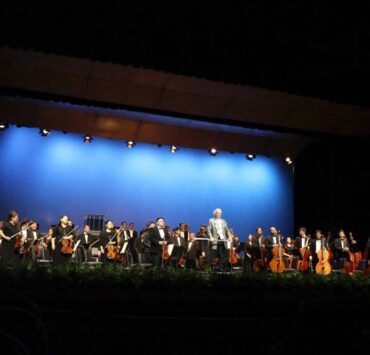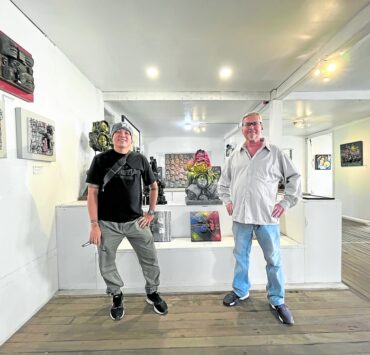FDCP trains next-gen cinema powerhouses
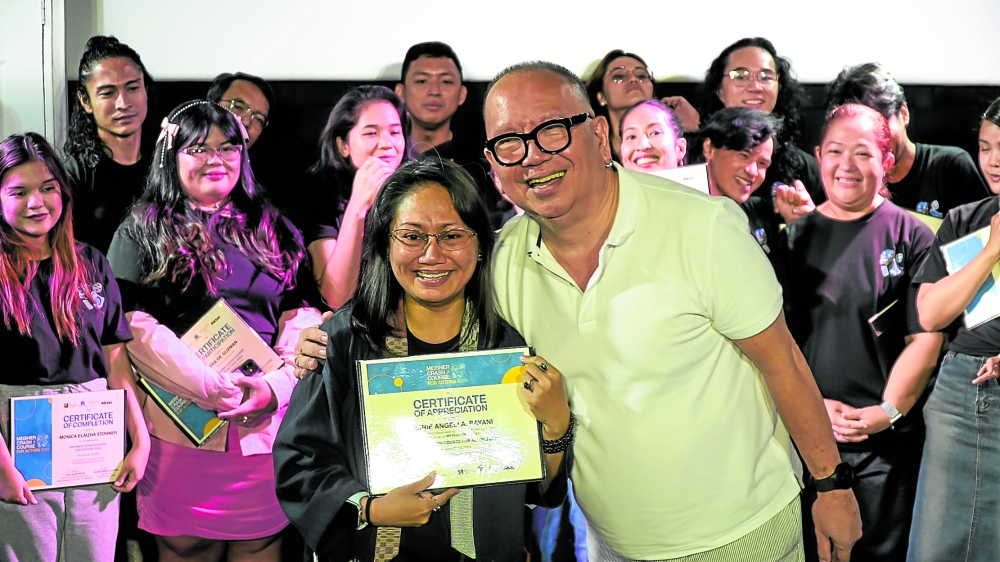
The Film Development Council of the Philippines (FDCP) is turning itself into a full-blown creative boot camp—starting with an acting workshop led by Angeli Bayani, one of the country’s few certified teachers of the Meisner technique.
The acclaimed actress and educator has been quietly transforming aspiring performers into emotionally present, instinct-driven actors using the method developed by American teacher Sanford Meisner. And now, thanks to FDCP’s Film Education and Development program, that kind of actor training is headed beyond the capital.
“We’ve had a number of workshops in Metro Manila following the Meisner method,” said FDCP chair Jose Javier Reyes. “Now, we’re bringing the workshops to the regions. The next one is in Bacolod. After that, we’re going to Iloilo and Davao. We want regional actors to receive the same training as those in the metro.”
If you’re not familiar with the Meisner method, it trains actors to be emotionally honest and fully present in the moment—no overthinking, no pretending. Just genuine, gut-level responses based on real connection.
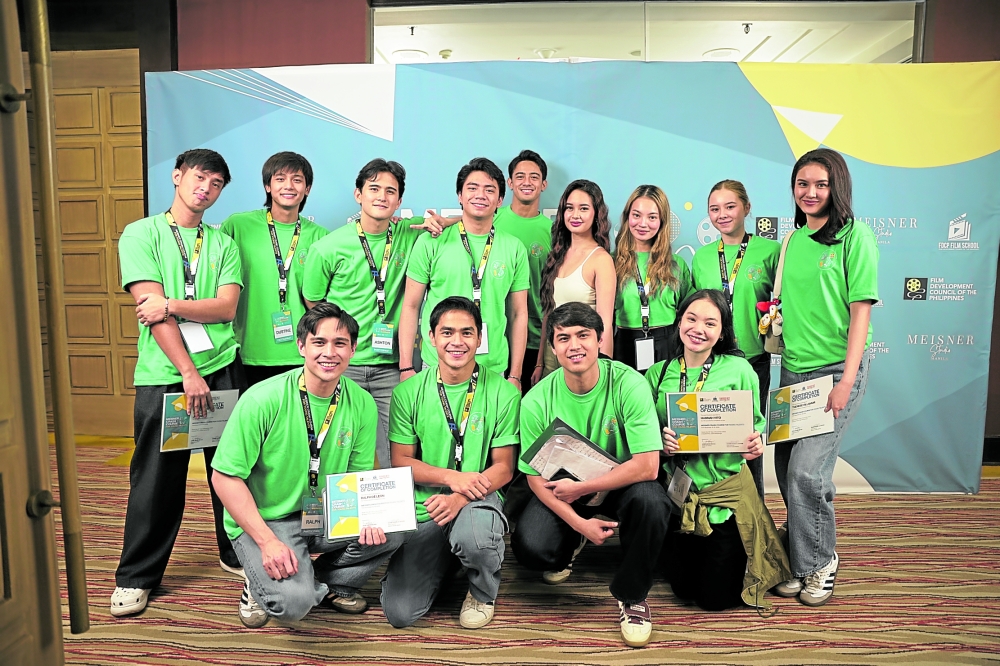
“Angeli is one of the few certified Meisner teachers here. She’s a fantastic mentor,” said Rica Arevalo, FDCP’s head of project development. “We held two sessions last year—one in Metro Manila in June, another in Clark for teen actors in November. It’s an open application, but Angeli personally interviews every applicant. You have to be committed—it’s five straight days, no absences allowed.”
But acting isn’t the only focus. The Meisner workshop is just one part of FDCP’s wider mission to nurture local storytellers. From students to seasoned creatives, the agency is all-in on education.
“We’ve chosen to focus on education because FDCP is really an agency for development,” Arevalo explained. “We want to help those who need it most.”
Writing workshop
Next up: writers. The FSG Screenwriting Workshop, a long-running collaboration with the Filipino Screenwriters Guild, kicks off this June in Bulacan. “It’s a five-day intensive for writers from the Calabarzon region,” Reyes said.
“They’ll come up with story concepts and write full scripts,” added Arevalo. “The hope is that later on, they’ll find producers or secure grants. We want to develop screenwriters who can truly deliver.”
College students working on their thesis films also have something to look forward to. The Student Film Assistance Program offers grants of up to P50,000 for short films, documentaries, or animations—plus a master class to go with it.
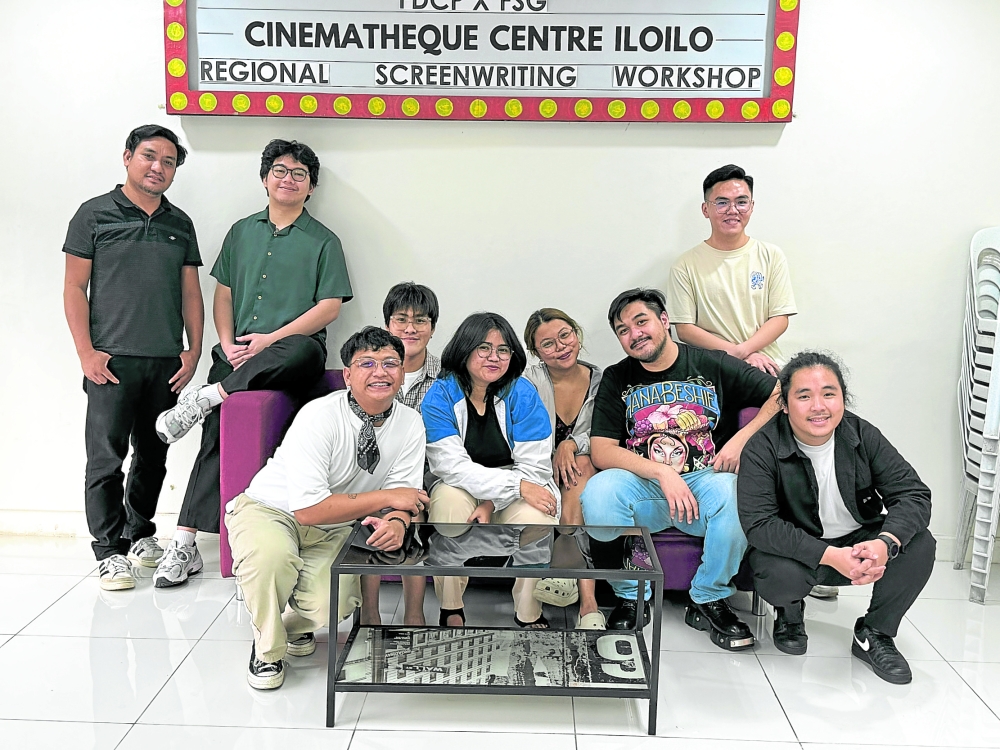
“We’re now on our third cycle,” said Arevalo. “We’ve already supported nearly 100 projects. The school just needs to be part of our Academic Film Society. And yes, the students keep 100 percent of the rights to their work.”
FDCP’s programs also cater to even younger filmmakers. Sine Kabataan, which supports storytellers aged 25 and under, returned with workshops and a pitching showcase on April 23 to April 25.
“One of last year’s winners came from Nabunturan, Davao de Oro,” Reyes reported. “It beat entries from major cities. That tells us we’re doing something right.”
Science storytelling
There’s also something for budding science storytellers. From April 24 to April 25, FDCP and the Department of Science and Technology (DOST) will host the Indie Siyensiya workshop in Davao.
“High school and college students will attend workshops on animation and directing, with all content focused on science,” Arevalo said. “DOST selects the students, and we provide the mentors. The films will be streamed on JuanFlix, our online platform.”
Last April 26 to May 4, the PAS SEA (Produire au Sud Southeast Asia) Workshop was held, a three-part program that started in Subic, went online, and concluded in Taiwan. The focus was to prep feature film projects for international coproductions. “We had filmmakers from Taiwan and Southeast Asia joining,” Reyes explained.
Arevalo added: “We had five European mentors participating—script consultants, producers, pitch experts. We want our filmmakers to go beyond local and start thinking regionally.”
And if your film is already in post, FDCP’s still got your back. From May 25 to May 30, two Filipino projects will head to Busan, South Korea, for the FLY Post Lab under the Asian ROK Film Leaders Incubation Program.
“This is advanced training in finishing films for streaming and digital platforms,” said Reyes. “Each Asean country sends two filmmakers. Our reps will be announced soon.”
So whether you’re a college kid editing your first short film or an actor rediscovering your truth, FDCP probably has a program—or a mentor—waiting for you. Because here, training isn’t just a stepping stone. It’s the main event.














